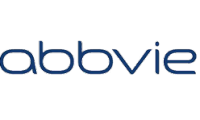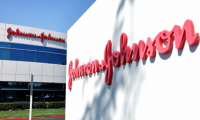-
Positive Results from Phase 3 SELECT-GCA Study of Upadacitinib (RINVOQ®) in Patients with Giant Cell Arteritis
- Source: drugdu
- 79
- April 25, 2024
-
Preclinical Safety Signal Prompts FDA Clinical Hold on Neumora Schizophrenia Drug
- Source: drugdu
- 84
- April 17, 2024
-
Disco tunes into new cancer drug targets
- Source: drugdu
- 114
- April 7, 2024
-
Drugmakers submit counteroffers to US Medicare pricing negotiations
- Source: drugdu
- 80
- March 8, 2024
-
FDA Approves Imbruvica Label Expansion to Include Oral Suspension Formulation
- Source: drugdu
- 132
- February 29, 2024
-
Lilly’s Jaypirca tipped to capture 60% of BTK leukemia market, leaving AstraZeneca, BeiGene in the dust
- Source: https://www.pharma.com/marketing/lillys-jaypirca-tipped-capture-60-btk-leukemia-market-leaving-astrazeneca-beigene-dust
- 161
- January 24, 2024
-
Lundbeck launches ‘Say Yep’ for new Vyepti multi-media migraine campaign
- Source: drugdu
- 142
- January 20, 2024
-
J&J Joins the Cancer ADC Dealmaking Spree With $2B Ambrx Acquisition
- Source: drugdu
- 138
- January 10, 2024
-
As cancer players jump head-first into ADC field, Novartis CEO explains how he’s resisted the temptation
- Source: drugdu
- 90
- January 10, 2024
-
After a down year, FDA signs off on a bounty of new meds, including 7 from Pfizer
- Source: drugdu
- 224
- January 4, 2024
your submission has already been received.
OK
Subscribe
Please enter a valid Email address!
Submit
The most relevant industry news & insight will be sent to you every two weeks.













